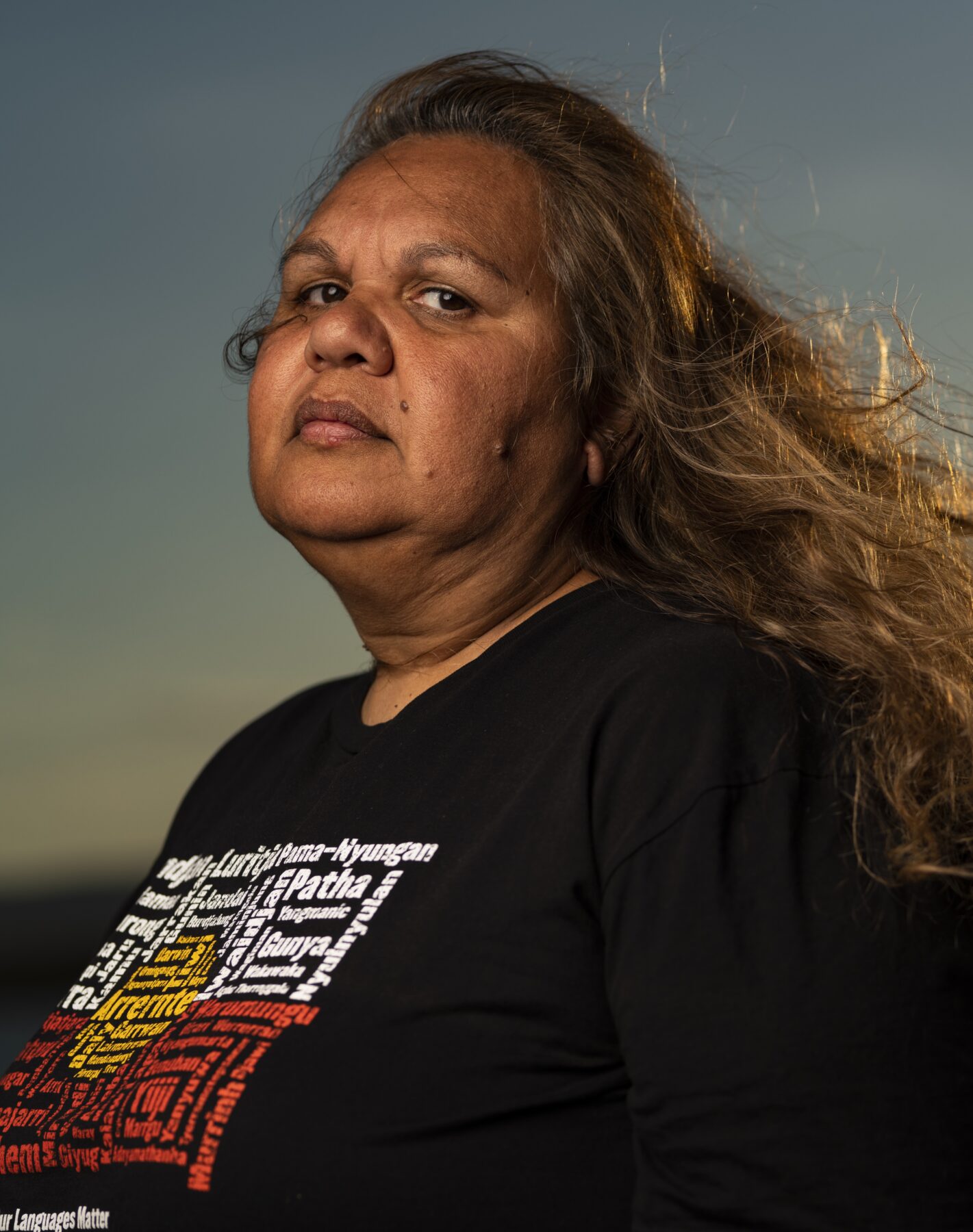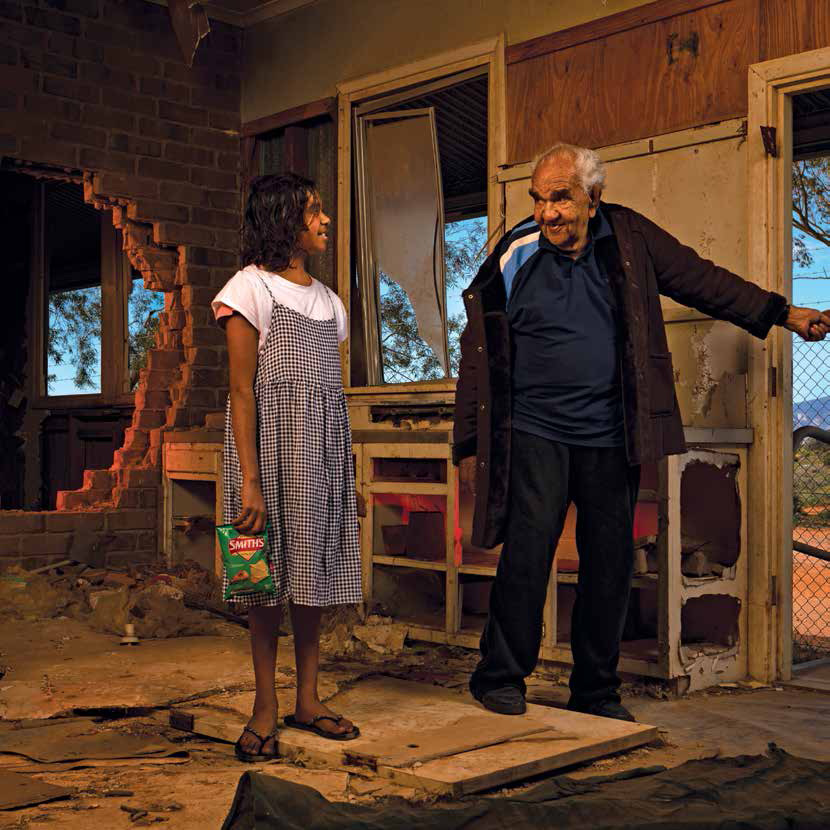Listening to the voices: Lavene Ngatokorua

This is the second in a series of interviews between First Nations advocate Thomas Mayo and the Indigenous community leaders he met when he toured Australia in 2019 with the Uluru Statement from the Heart.
Lavene Ngatokorua
Adnyamathanha and Wangkangurru, South Australia
Lavene Ngatokorua is the unpaid CEO of the Davenport Community Council and a board member for both the South Australian Native Title Services and the Adnyamathanha Traditional Lands Association. She is also the director of both Umeewarra Aboriginal Media and Vimba Warta Civil and Mining, which was named the 2018 Port Augusta NAIDOC Organisation of the Year. In that year, Lavene received the Port Augusta NAIDOC Lifetime Achievement Award.
Lavene’s Aboriginal name is Marrukanha. She is an Adnyamathanha and Wangkangurru woman. Her father’s people, the Adnyamathanha, are of the Flinders Ranges in South Australia. The Wangkangurru people are a First Nation of the Simpson Desert region.
Lavene grew up at the Umeewarra Mission Children’s Home. “I was put in the home when I was about two months old. From what I understand, my parents went shopping and when they came back, I was already gone. It was about 1968,” she says.
The home was situated about 4km north of Port Augusta, in SA. The Christian Brethren opened the mission in 1937 as a home and school for Aboriginal children. When Lavene was taken, the government had assumed control of it and renamed it Davenport Reserve. The Umeewarra Mission Children’s Home continued to operate within the reserve until it was closed in 1995.
“I was stolen, but to me, I was just another kid, so I didn’t know that terminology. There was a lot of confusion. I sort of considered myself throughout the time as the ‘forgotten people’,” she says. Her voice is sombre as she describes her childhood. “I have seven siblings. Six of my siblings were given back to the family; me and my sister were left in the home. That’s why I say we were forgotten.”

As Lavene grew older, she didn’t know anything different from mission life and feared being given back. “The welfare people started to get involved, saying now you’re going to go back with your parents. But my parents were strangers,” she says. “We were the opposite of children hiding from being stolen by white welfare workers. Every time the welfare car would come to the mission, us kids would scatter into the sandhills and run away, because we didn’t want to leave; the mission was our home.”
Lavene smiles as she talks about a much fonder memory. “I remember my grandfather coming up…to the children’s home,” she says. “He’d come up and bring chips and cool drinks and lollies for me and my younger sister, and he’d also bring extra lollies. He’d say, ‘That packet is for the other kids, but they mustn’t share yours – this is for you.’”
Her grandfather told them stories. “I fondly remember he would be pointing towards the hills, and he’d say to me, ‘You know, this is not your home; your home is over there in those hills.’ At that time, I didn’t know how important that was to me. Now I know what he meant, but back then, all I knew was that it was important to him. I would look over there as a five- or six-year-old and think, ‘I’m going to get there one day.’”
Lavene later learnt that her grandfather was a senior law man. “He was the holder of Adnyamathanha law visiting two of his grandchildren,” she says. “We weren’t forgotten. He came out to see us. We were a big family; he had 14 children. It was like he was there to tell us, ‘You’re still one of us; the system’s not going to control you.’ But I didn’t know the importance of that then.”
Lavene loves going back to Country and enjoys creative photography. Her photography is a means to remember significant moments in her past and a way of making political statements. Her images are clear and crisp, and the stories they depict are easy to understand and powerful. One of her images was inspired by her grandfather’s visits. “I got my father to be the stand-in for my grandfather…and my brother’s kids to stand in for my siblings and me. I asked my father to point to the hills, like my grandfather did when he would visit,” she says. “My dad’s 80 years old. He’s frail and shakes; he can’t stand on one leg too long.” Lavene’s face softens as she speaks; her voice quietens slightly. “As I was working, my father in a really quiet voice said, ‘You know, girl, we never forgot you…I never forgot you.’”

Lavene has been an activist for most of her life. She has been a dedicated spokesperson and leader for her community, not only leading from the streets, but also from within the Davenport council as a volunteer CEO. From within the system, she has fought the “seagulls”. “Seagull” is her label for the comfortable bureaucracy from the cities, and the non-Indigenous contractors who fatten their bank accounts with profit, sometimes by dubious means. Outside the system, she leads protests and has become someone the community turns to as an organiser of effective public dissent against detrimental government decisions.
Her father was also an activist, but she didn’t find this out until much later in her life. “My dad was a big fellow, like a real big stand-tall fella with a lot of big curly hair,” she says, laughing. “There’s a picture in the Davenport Council office where I work. It’s a photo of a group of fellas who went to Canberra on a delegation from the Davenport Reserve. It was about 1965. I remember Dad talking about it a long time ago. In it is Charlie Perkins. So I said, ‘Hey, Dad, all this time I was doing all the freedom fighting, and you were the first one going to Canberra, meeting with the minister, fighting for Aboriginal rights! Back then!’ That shocked me.”
Today, Lavene thinks there are too many individual units and groups working separately, rather than coming together and creating a united voice. “We’re in a trance,” she says. “We need to get together. That waking up from that slumber. It needs to come and it needs to come quicker. We haven’t got a large window of opportunity as Aboriginal people while there is support in the wider community – and we need that wider community to be supportive of us in the lead-up into a referendum. We need that talk; we need people to get behind us.
“There’s a raging bushfire that has been imposed on us, but we’re all getting tired fighting our individual spot fires. When you look at the Country Fire Service who fight the big bushfires, they all work together. We need to be strategic, like the firemen. They create firebreaks; they can change the course of the fire.”
Lavene, now 51, has been involved in activism since she was 19. Although it has been exhausting, she is proud of her contributions and is committed to continuing her fight. “I love my community. I love what I’ve done; I love where I work,” she says. “The experience of life has taught me not to be selfish, but to honour the people. I’m honouring my father, my grandfather, my great-grandfathers and mothers who fought for us to be here. I have a real respect…I will continue their legacy.”







